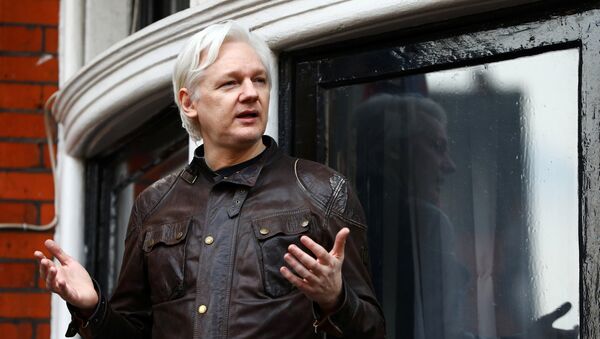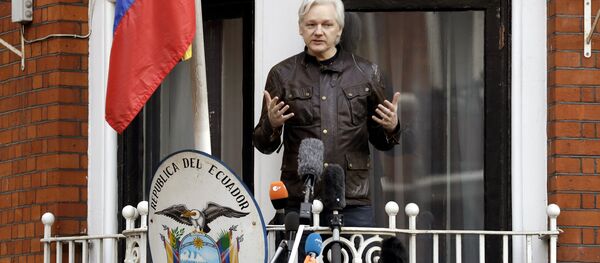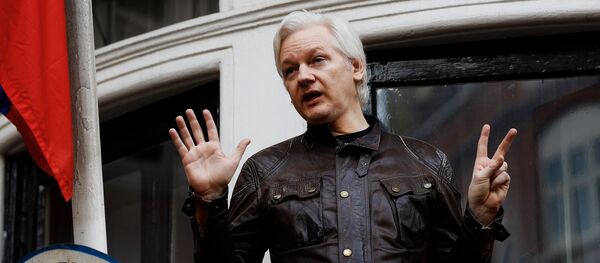The memo, which was published by Ecuadorian website Codigo Vidrio on Monday, offers a series of conditions that Assange must abide by if he chooses to continue his residency at the London-based embassy. In order for Assange to have his internet privileges restored, he must steer clear of political matters that could disrupt Ecuador's diplomatic interests. Assange will only be allowed to use the embassy's Wi-Fi network.
It's unclear if Assange has agreed to the conditions mentioned in the document. An early Monday WikiLeaks Twitter post indicates that officials at the Ecuadorian embassy have yet to lift Assange's internet ban.
Credico, a long-term associate of Assange, spoke with hosts Brian Becker and John Kiriakou of Radio Sputnik's Loud & Clear on Monday to offer more insight on what lifting the internet ban really means for Assange, whose online presence disappeared back in March.
"I think what [Assange getting a limited Wi-Fi connection] means is that he has to be careful on what he comments on," Credico said, before suggesting that had Assange managed to hold onto his internet privileges, the Australian would've been able to shed light on the case of disappeared Saudi journalist Jamal Khashoggi.
"To limit a journalist is like letting a guy who's a baseball player out of the bullpen, but he can't pitch," the activist added.
WikiLeaks first revealed on Twitter on Sunday that Ecuador would be loosening the reins on Assange, tweeting that the decision came after Ecuadorian President Lenín Moreno met with UN officials. The Ecuadorian government suspended Assange's web access in March after he breached a written agreement established in December 2017 to not interfere in political matters.
Credico told Becker that now more than ever it is important to keep a spotlight on developments related to Assange.
"I think that everybody's got to be involved and put the pedal to the metal here," he said. "Everybody has to be vigilant and not recede in their enthusiasm… even though [Assange] was given this little bit of light… we should not take this as a victory."
"We have a long way to go," he stressed.
Assange has been living at the Ecuadorian embassy since June 2012, when he sought refuge there to avoid extradition to Sweden over since-dropped sex crimes-related charges. Though Sweden dropped the case against Assange in 2017, the 47-year-old has remained at the embassy over fears that UK authorities will arrest him for previously jumping bail. There are concerns that if Assange was taken into custody, British officials would then extradite him to the US.



